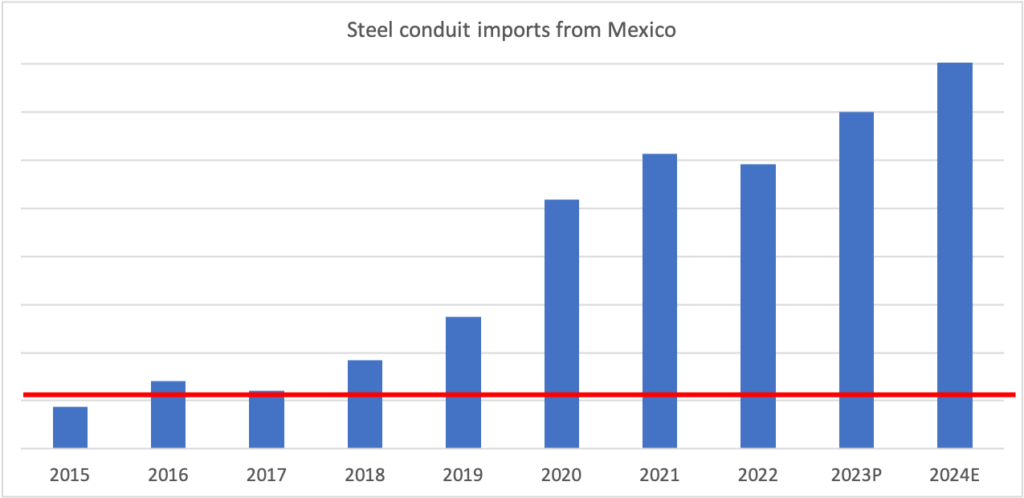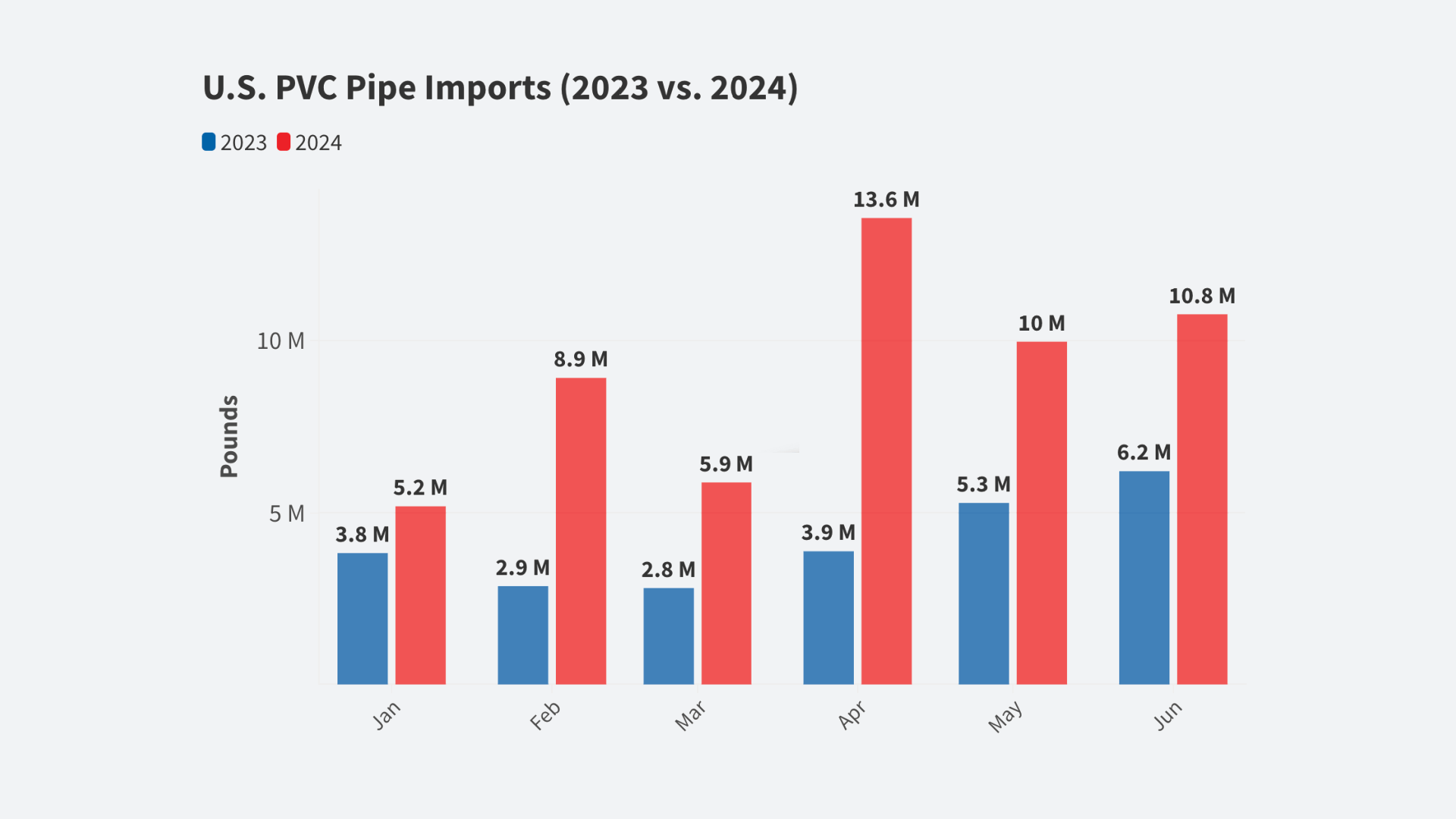In 2019, the U.S. and Mexico agreed to voluntary limits on steel imports from Mexico into the United States. Since the inception of this agreement multiple steel products have steadily increased, and steel conduit in particular has skyrocketed. The results have been painful for U.S. producers. The surge in imported Mexican steel conduit led directly to the closure of Zekelman Industries’ Long Beach mill, with the loss of 150 jobs.
The surge of imports shows no sign of slowing down. The issue is now the subject of negotiations between the U.S. and Mexican governments.
Steel conduit is steel pipe, typically with a diameter of ½” to 4”, used to carry power and communication cables. It is widely used in all types of construction projects, indoors, outdoors, and underground. The steel provides physical protection for the critical circuits and also safety, because the steel is grounded, to prevent electric shocks.
In 2019, as part of the USMCA negotiations with Mexico and Canada, the U.S. government agreed to suspend the 25% tariffs on steel imports from Mexico provided Mexican companies did not exceed past levels of their shipments into the U.S. But in recent years, Mexican steel producers have built numerous mills equipped to produce conduit, with their eye on the U.S. market.
In October 2022, Zekelman Industries announced the closure of its Long Beach, California plant, with the loss of 150 jobs, due mainly to Mexican imports of steel conduit reducing the market for Zekelman’s products. Zekelman Industries is one of the largest privately held steel companies in the U.S., with 2,900 employees across 20 locations and over $3 billion in revenue last year. Other U.S. producers have also scaled back their operations driven by the aggressive action of the Mexican manufacturers.
According to Zekelman’s President of Electrical Products Jim Hays, Mexican producers are persistently pricing their products at 25% below the prevailing prices in the U.S. market. The result has been huge growth in U.S. imports of Mexican conduit. Post the USMCA agreement, Mexican steel producers have reclassified steel conduit imports under other tariff codes, effectively masking the huge volume of conduit imports. But a recent decision by the Court of International Trade ruled that steel conduit must be classified under its rightful tariff code of 7306-3050-28.
Figures from import reporting services summing up conduit imports across several different tariff codes show that after rising steadily in 2021, 2022, and 2023, Mexican conduit imports in the last two months of 2023, if annualized, were running at some 760% above the historic levels of 2015-2017. At those levels, and with prices deliberately set far below U.S. market prices, the imports threaten hundreds more jobs and hundreds of millions of dollars of U.S. revenue and investment. Figure 1 below shows the explosive growth of conduit imports.
Dispute Must Be Resolved by Two Governments
The joint agreement of 2019 between the U.S. and Mexican governments said: “In the event that imports of aluminum or steel products surge meaningfully beyond historic volumes of trade over a period of time…the importing country may request consultations with the exporting country. After such consultations, the importing party may impose duties of 25 percent for steel.”
Consultations have taken place and so far the Mexican government has been unwilling to require its steel conduit makers to cut back on U.S.-bound production. After five years of explosive growth in conduit imports, and the layoff of over 150 unionized workers, the Biden administration is reaching a point where it will have no choice but to re-impose the tariffs or quotas on Mexican steel producers.
Figure 1. U.S. imports of steel conduit from Mexico have exploded since 2017

Notes:
- Red line represents “historic levels” of conduit imports under 2019 agreement.
- Blue bars show annual totals. (Actual tonnage figures omitted for confidentiality purposes.)
- Total for 2023 is projection of annualized total from 11 months of data.
- Total for 2024 represents estimated annual total assuming Nov/Dec 2023 figures continue throughout 2024.












